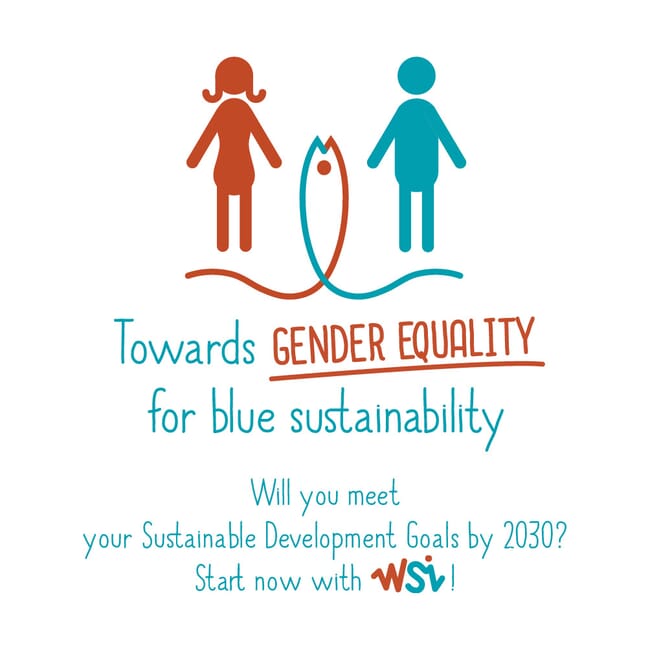“As we are entering 2020, a decade remains before reaching the United Nations Development Goals. WSI concretely ask stakeholders to join WSI and become gender equality champions. Because the seafood industry is worth it!” the organisation urged in a statement released this morning.

In September 2015, the United Nations led a process seeking to end poverty, to fight inequality including gender inequality, and tackle climate crisis. It resulted in the worldwide adoption of 17 global Sustainable Development Goals (SDGs), including gender equality and female empowerment to be fixed by 2030.
WSI observes that the fisheries and aquaculture industries may have developed numerous actions towards achieving SDG 14 (marine resource sustainability) but next to nothing for gender justice.
According to WSI’s reports on the issue, published in 2017 and 2019, “not much has been initiated and even less achieved. If the seafood industry were a country, it would be one of the most gender unequal in the world”.
According to WSI, the most frequent forms of inequality include:
- Invisibility - WSI argues that female contributions to the industry are in many cases not taken into account, invisible into national and sectorial statistics. Unpaid or underpaid auxiliary work allows fishing activities by men to continue even when the activity is not profitable (mending nets, administration, selling). Women’s labour is considered as a “hidden subsidy”.
- Exclusion - WSI notes that “by law, by habits, by tradition in all but a handful of progressive countries, women are excluded from decision making arenas, from being elected in representative bodies, from public policy designing”.
- Discrimination - WSI argues that “women meet impediments to accessing inputs such as financial capital, bank loans, new technology and immaterial capital such as training. Stereotypes and social norms prevent women from getting some jobs, such as fishers, high profile and well paid jobs."
According to WSI, women make up 90 percent of the seafood processing industry workforce, but less than 10 percent of corporate board members and 1 percent of CEOs.
"They even are grossly discriminated to speak at conferences and we should all remember that family burdens lie disproportionately (time, cost) on women shoulders,” WSI observe.
The organisation goes on the say that the mainly male leaders of the industry “are unaware about the actual gender imbalance and the detrimental impacts on the entire business”.
According to a WSI survey, 55 percent of male leaders consider that this problem is solved and 85 percent admit that they don’t pay attention to it.
The organisation concludes that: "the cost of inaction will be bigger than the cost of action, because gender equalities clearly benefit both gender and the business."
As a result WSI is offering to help fishing and aquaculture stakeholders set up "concrete projects to progress in gender balance".

